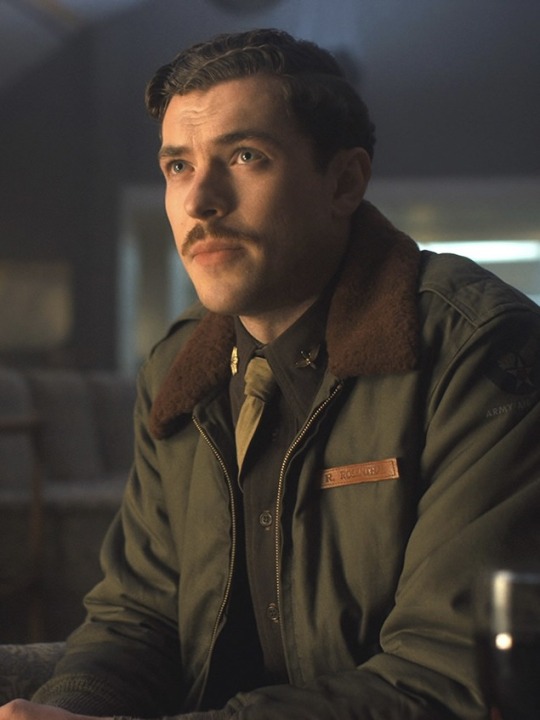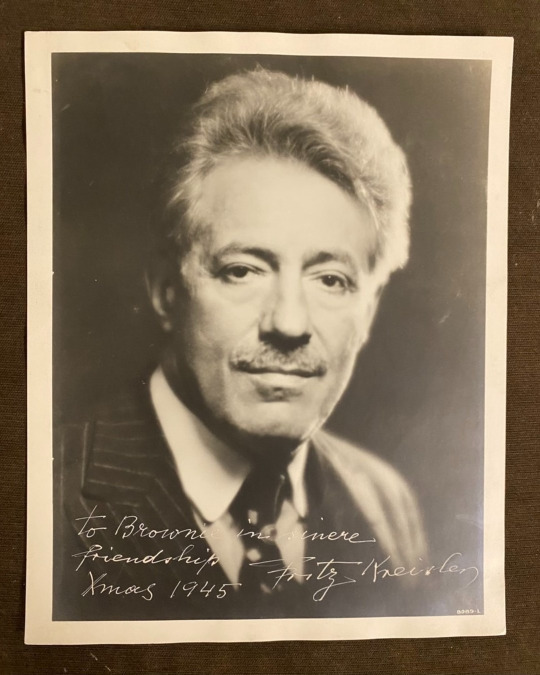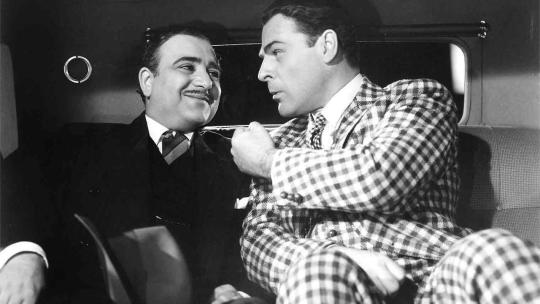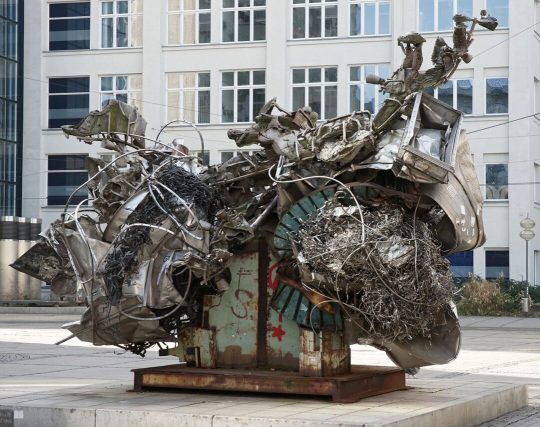#friedrich rosenthal
Text
100th Bomber Boys: Major Robert 'Rosie' Rosenthal: Pt. 2



If you missed part 1, you can find it here!!
Following the Munster mission in October of 1943 that decimated the 100th bomb group, Rosenthal took on a leadership role among the men. With Egan and Cleven gone, the men needed someone they could look up to for strength and guidance. Even though the Münster mission was only his third, he and his crew were sent on a week's leave. Following their leave, the 100th was one of the first to bomb the capital city of Berlin.
The next objective for the 8th Air Force was to achieve total European air supremacy in order to prepare for the D-Day landings. Their job was to take out the Luftwaffe, starting with the factories and plants that manufactured various parts for various MEs and other German fighter planes. The introduction of the P-51 Mustang, a long-range fighter plane that could accompany the B-17s to their targets. These planes ended up changing the tide of the air war.
The Mustangs were taking out Luftwaffe planes at an astounding rate with small loss rates. This development led to the B-17s essentially being used as bait for the Luftwaffe planes to attack so that the Mustangs could swoop in and destroy the withering German air force. The Luftwaffe was losing its veteran pilots, making the force less lethal than it was at the beginning of the war.
(pg. 281: Don Miller's Masters of the Air)
In May 1944, two months after completing twenty-five missions with the crew of Rosie's Riveters, he took over the 350th Bomb Squadron of the Hundredth, whose morale and efficiency had slipped badly, and began to restore the unit to peak performance. "After the first Berlin raids, we had men who were banged up mentally, and a few of them didn't want to fly anymore. I told them they had a moral obligation to fly, and that I would fly with them. We were here to beat Hitler. I also told them that if they didn't fly they would be letting down friends who had helped to keep them alive up to now. The appeal to their pride and respect worked better than the one to their patriotism." Rosenthal knew that without group loyalty-the responsibility that fighting men feel to the men next to them - wars would be impossible. Gale Cleven and John Egan "gave the 100th its personality," wrote Harry Crosby. "Bob Rosenthal helped us want to win the war."
In the end, however, Eighth Air Force morale improved markedly only when casualty rates declined. That began to happen in May 1944, after American fighter pilots had reduced the Luftwaffe's effectiveness. "We did the bombing-the dirty work," said Rosenthal, "We were the decoys, and they took care of the bad boys that had been beating us up. They were guys who made D-Day possible?""
In early May, the 8th took the war to synthetic oil refineries in Germany, knocking a major blow to the Nazi war machine. The Germans did not have much natural oil in their territory, and even when they invaded Poland in '39, they only had enough oil reserves to last the army, air force, and navy for a few weeks. With their addition of conquered territories, the shortage became less of a problem, but in a military that mainly used oil (instead of coal like the rest of Germany) any shortage was a problem. In response, they began manufacturing synthetic oil in hydrogenation plants using the Bergius process, named after its inventor, Nobel-Prize-Winning Friedrich Bergius (that I am not smart enough to explain). This oil was keeping the Nazi military going, and striking it made a huge dent in their war-making capabilities. Unfortunately, Gen. Carl 'Tooey' Spaatz's bombing offensive was put on hold to prepare for the Normandy invasion. This time, the 8th and 15th Air Forces would be bombing Germany's important industries in France.
It was the last week of May, and the time had arrived to soften the Germans up for D-Day. The plan was to hit the main points of German transportation in occupied France, including railroad marshaling yards in Northern France and Belgium. This was supposed to delay the enemy's ability to bring reinforcements, tanks, and other supplies that would be needed to fight the Allied invasion on June 6th. The offensive turned out to be a major success. "Allied heavy and medium bombers almost completely dismembered the rail network of northern Belgium and France, choking off the main supply channel that fed the German army (Miller, 2007, pg. 291)." Bridges over the Loire and the Seine were also smashed, "cutting off most of Normandy and Brittany from the rest of France (Miller, 2007, pg. 291)."
Then on June 6th, 1944, the 100th was tasked with bombing the German strongholds along the beachheads. They were not very successful, but their earlier missions were the things that made the invasion possible.
(pg. 294: Don Miller's Masters of the Air)
For nearly every Allied airman who flew that day, it was the greatest experience of the war. "I briefed the crews of the 100th," recalls Rosie Rosenthal, "and I had never seen such a reaction from them. They stood and cheered and roared. This is the day they had been looking toward. I led the group on the third bombing mission of D-Day, toward dusk. We had a rule. No one could talk on the intercom unless it was absolutely necessary-radio discipline. But as we passed over that vast armada and headed over the beaches, a member of our crew started to say a prayer for the people down below and we all joined in. It was one of the most emotional moments of my life."

tag list: @luckynumber4 @footprintsinthesxnd @georgieluz @sweetxvanixlla @coco-bean-1218
message or comment if you want to be added to the tag list! <3

#hbo war#masters of the air#major robert rosenthal#major robert rosie rosenthal#rosie rosenthal#road to masters of the air#nate mann#gale cleven#major john egan#major buck cleven#about masters of the air#hbowar#hbowar info#gale buck cleven#john egan#1940s#wwii#100th bombardment group#100th bomb group#8th air force#eighth air force
21 notes
·
View notes
Text


OTD in Music History: Legendary violin virtuoso Friedrich "Fritz" Kreisler (1875 - 1962) makes his American debut at Steinway Hall in New York City in 1888, kicking off his 1st American tour (1888–1889) with famed concert pianist Moritz Rosenthal (1862 - 1946).
A remarkable child prodigy, Kreisler first studied music at the Vienna Conservatory from 1882-1885 (where his teachers included Anton Bruckner [1824 – 1896]) before moving on to the Paris Conservatory from 1885-1887 (where his teachers included Léo Delibes [1836 - 1891] and Jules Massenet [1842 – 1912]).
When Kreisler graduated from the Paris Conservatory at the tender age of 12, he was awarded a prestigious gold medal -- beating out 40 other violinists (all of whom were at least 20 years old) to secure that honor.
Kreisler was also a noted composer who wrote a number of enduringly popular short pieces for the violin.
Some of these compositions were pastiches, ostensibly penned in the style of other composers -- and indeed, Kreisler originally "passed them off" as the work of famous Baroque composers including Giuseppe Tartini (1692 - 1770) and Antonio Vivaldi (1678 - 1741).
When Kreisler finally came clean about this deception in 1935, a number of prominent music critics who had been completely taken in by this ruse raised a fuss in the press.
Kreisler, however, took great pleasure in wryly pointing out that whatever their qualms, the critics themselves had already conceded the high quality of the music itself: "The name printed on the sheet music may now change, but the musical value of the underlying notes remains very much the same!”
PICTURED: A publicity headshot showing the elderly Kreisler, which he signed and inscribed to a friend with "Xmas" wishes in 1945.
Today: Watch the only known (unfortunately silent) film footage of legendary violin virtuoso and composer Fritz Kreisler (1875 – 1962) playing his violin, which was shot at the house of a family friend c. 1930.
It is actually rather surprising that we don’t have *more* film footage of Kreisler in action (including sound footage), considering that he lived into the 1960s. The most likely explanation comes from the fact that Kreisler was involved in a serious traffic accident in 1941, which put him in a coma for a week and largely derailed his later career. This unfortunate incident probably robbed of us many additional opportunities for film footage with sound to be shot...
According to one eagle-eyed observed, Kreisler appears to be playing part of the “Sarabande” from J.S. Bach’s (1685 – 1750) 1st Violin Partita (BWV 1002).
#classical music#music history#composer#classical composer#classical studies#maestro#Fritz Kreisler#Kreisler#violin#violinist#virtuoso#Concerto#Concert#classical musician#classical musicians#classical history#history of music#historian of music#musician#musicians#music education#music theory#cadenza#Steinway Hall#Philharmonic
13 notes
·
View notes
Text
Universität Jena verabschiedet Präsident Walter Rosenthal

Prof. Dr. Walter Rosenthal verlässt zum Monatsende die Universität Jena
Zum Monatsende verlässt Prof. Dr. Walter Rosenthal die Universität Jena und tritt sein neues Amt als Präsident der Hochschulrektorenkonferenz (HRK) an. Die Universität würdigt ihren langjährigen Präsidenten mit einer Festveranstaltung am 24. Oktober. Dazu werden ehemalige Weggefährtinnen und -gefährten Rosenthals aus Politik, Wissenschaft und Wirtschaft erwartet, darunter Thüringens Ministerpräsident Bodo Ramelow, Wissenschaftsminister Wolfgang Tiefensee und der Universitätsratsvorsitzende Prof. Dr. Wolfgang Marquardt.
Verabschiedung von Präsident Walter Rosenthal - Festveranstaltung mit Podiumsdiskussion am 24.10. via Livestream verfolgen
Im Mittelpunkt der Veranstaltung in der Aula im Universitätshauptgebäude steht eine Podiumsdiskussion zur Rolle der Universitäten im deutschen Wissenschaftssystem, die von der FAZ-Redakteurin Heike Schmoll moderiert wird. Auf dem Podium diskutieren neben Walter Rosenthal der Präsident des Stifterverbandes Prof. Dr. Michael Kaschke, die Vorsitzende der Joachim Herz Stiftung Prof. Dr. Sabine Kunst, der DFG-Vizepräsident Prof. Dr. Axel Brakhage, Dr. Gisela Koop, Sprecherin der Jungen Akademie sowie der Universitätsratsvorsitzende Prof. Dr. Wolfgang Marquardt.

Prof. Dr. Walter Rosenthal, Foto: Norman Konrad // Uni Jena
Weitere Jenaer Nachrichten aus der Rubrik Uni Jena >>
Walter Rosenthal hat die Universität Jena seit 2014 als Präsident über zwei Amtszeiten geleitet. Für seine wegweisende strategische und operative Führungsleistung wurde er 2022 von der Wochenzeitung die ZEIT und dem Centrum für Hochschulentwicklung CHE zum Hochschulmanager des Jahres gewählt. In seiner Amtszeit war die Universität in allen großen Förderprogrammen des Bundes in Forschung, Lehre, Transfer, Nachwuchsförderung und Internationalisierung erfolgreich. Die Friedrich-Schiller-Universität geht als einzige ostdeutsche Universität neben der TU Dresden mit einem bestehenden Exzellenzcluster in die nächste Runde der Exzellenzstrategie.
Veranstaltungshinweis:
Dynamische, tanzbare Musik und jamaikanische Vibes mit Jahneration aus Frankreich am 26.10.2023 im KulturBahnhof Jena

Am 26.10. kommt das erfolgreiche New-Reggae Duo Jahneration aus Frankreich in den KuBa Jena, Fotografik: Fb Eventbanner SOUNDSGOOD Music Agency und Cosmic Dawn-Kuba Jena
Rosenthals Engagement für zusätzliche Förderungen von Land und Stiftungen ermöglicht große Bauvorhaben, die die Zukunftsfähigkeit der Universität sichern und modernste Forschungsinfrastrukturen schaffen, darunter der Campus Inselplatz – das größte Hochschul-Bauvorhaben Thüringens. Zu seinen Verdiensten gehört es auch, die vernetzte Zusammenarbeit am Wissenschaftsstandort Jena vorangebracht zu haben – etwa mit der Gründung des JenaVersum e. V. Mehr als 230 Professorinnen und Professoren hat Walter Rosenthal während seiner Zeit als Präsident der Universität Jena neu berufen und dabei die Frauenquote maßgeblich gesteigert.
Die Podiumsdiskussion und die gesamte Festveranstaltung werden per Livestream übertragen und sind hier abrufbar: https://www.uni-jena.de/podiumsdiskussion-praesident.
Veranstaltungen im Eventkalender >>
Info, Ute Schönfelder // UNI Jena
Fotos, Norman Konrad // Universität Jena
Read the full article
0 notes
Photo

Akim Tamiroff and Brian Donlevy in The Great McGinty (Preston Sturges, 1940)
Cast: Brian Donlevy, Muriel Angelus, Akim Tamiroff, Allyn Joslyn, William Demarest, Louis Jean Heydt, Harry Rosenthal, Arthur Hoyt, Libby Taylor. Screenplay: Preston Sturges. Cinematography: William C. Mellor. Art direction: Hans Dreier, A. Earl Hedrick. Film editing: Hugh Bennett. Music: Friedrich Hollaender.
The attitude of Hollywood in the studio era toward screenwriters is usually summed up by the epithet "schmucks with typewriters," which has been attributed to various studio heads, or the sexist joke about the ambitious starlet who was "so dumb she slept with the writer." No one was more aware of the attitude than Preston Sturges, who had been a Hollywood screenwriter for a decade. He had seen several of his scripts mangled in the hands of other directors, so he is said to have made a deal with Paramount: He would sell them the script for what became The Great McGinty for $10 if they would let him direct it. They agreed, grudgingly, and the film was a hit, launching Sturges a career as one of the great writer-directors and winning him his only Oscar -- for the screenplay. There are glimpses in the movie of what Sturges would become: a great, irreverent satirist with a gift for screwball comedy. But on the whole, it's a more serious movie than we're accustomed to from him. It's told in flashback: McGinty (Brian Donlevy) is a bartender in a south-of-the-border saloon, who recounts his fall from grace -- ironically because "he never did anything honest in his whole life, except for one crazy minute." As a tramp, he was offered a bribe for his vote in a big-city election, and he discovered that the more he voted in that election the more money he could make. This got the attention of the city's political boss (Akim Tamiroff), who remade McGinty into a successful candidate for alderman, then for mayor. In order to get elected, he needed a wife, so his secretary, Catherine (Muriel Angelus), agreed to an in-name-only marriage. Eventually, however, they fell in love, and Catherine made him change his ways. He was elected governor, and tried to go straight, but this led the boss to fire a gun at McGinty, and they both wound up in jail. At the end, we see that the boss is now the owner of the bar McGinty tends. The somewhat low-wattage cast was forced on Sturges. Angelus is a rather pallid heroine, and Donlevy's performance shows why he never became a major star. But as his later films demonstrate, Sturges knew something about the texture that a colorful supporting cast could bring to a film, so we get standout work from Tamiroff, and William Demarest, who appeared in eight films Sturges directed and two more that he wrote, plays another politico. Another future key member of Sturges's stock company, Jimmy Conlin, has a bit part.
1 note
·
View note
Text
Friedrich, Aimless.
Hi look I did a thing
July 16, 1914
The bedside clock read 4:30am.
18 year old Friedrich Rosenthal’s nose scrunched up as he squinted at the clock; an absurd hour, but nevertheless, he quietly rolled out of the bed, careful not to wake last night’s “partner”. Shivering at the early morning chill, he started searching for his clothes.
This had become something of a habit. The exploration of his sexuality had been quite a trip already, but this was getting ridiculous. He looked at the still sleeping man in bed; a recruitment scout who’d gotten curious enough to approach Friedrich about spending the night. Lucky for him, Friedrich was on good terms with the hotel staff here. Hopefully he still would be with the good captain after this. I can at least leave him some money to get breakfast or something… He found a scrap of paper and a pen, scribbling out a small thank you and apology.
Between nurses in training, curious soldiers, and the men and women who just wanted a piece of him...he still felt strangely hollow. Friedrich ran his hand through his hair, quieting his thoughts. I don’t have time for this. And where the hell did my pants…? He found the damned things slung across a nearby chair (and didn’t want to know how they managed to get there).
Friedrich sighed, tossing his shirt on over his head. He carefully opened the door and slipped into the narrow hallway.
The trip down the stairs was uneventful, thank god. Given the early hour, only a handful of people were up and about, and their scrupulous staring was easy to ignore.
Not like they haven’t been giving you those judging stares since you were 16, anyway.
The woman sitting at the front desk gave him an unreadable look, but it was without judgement. He told her that the room was paid for today as well, and that his company was free to leave whenever. With a nod, she went back to whatever magazine she’d been reading.
The walk home seemed a bit cold, for June anyway. Or maybe it’s just because he felt a chilling dread creep up the back of his neck. After all, he could only imagine the shit he’d hear once he got home.
He sent up a quick prayer that Derrick would still be asleep.
“I probably should have a smoke,” he muttered, pulling a cigarette out of his pocket, along with his matchbox. Lighting the cigarette, he inhaled deeply, pulling his shirt collar open and blowing the smoke down inside. “Hopefully that’ll cover the smell,” he grumbled, annoyed at himself for not washing up at the hotel.
He always loved the early mornings here. The sun had risen not too long ago, the street lights still lit in some areas. The elderly woman who owned the bakery waved him down, handing him a small bag of rolls. “Danke schön,” he whispered, giving the woman a warm smile. “Child, you never eat before you leave that place. Someone has to make sure you do before you get home,” she whispered back, patting his cheek lovingly.
“I do try not to be so obvious about it…”
“Perhaps you should pick a different route home, than.”
Friedrich chuckled. “But I wouldn’t pass by your lovely home.”
“Yes, I would miss spoiling you in these early hours.”
Friedrich tried paying her again, but as always, she shoved him off with a wave goodbye.
As he began to make his way down the street towards his house, Friedrich briefly got lost in his thoughts.
What exactly am I looking for in all this? I mean, it isn’t like I’ll miraculously find anything special with the people I’m fucking, so why do I keep doing it?
Because you’re no good at anything else.
That’s not true.
Yes it is. You have no purpose. Why else would you bother? It’s not like any of those people are going to come back for you. All they’ve wanted is a good lay, and you know it.
Face it, Fritz.
You’ve got nothing.
He shook his head, smacking his cheek lightly. He didn’t need to walk through the front door red eyed from crying. Taking one last puff, he dropped the cigarette butt on the ground and snubbing it out with his heel. He pushed open the front door, trying not to make a sound.
“In before 8? I’m shocked, Fritz.”
Friedrich groaned. At least it’s Melanie. It could have been Derrick. “Aren't we just thrilled with my arrival?” he asked, stepping into the kitchen. His sister-in-law peeked over her shoulder at him. “It could have been your brother instead of me. At least you get breakfast before I lecture you.” His lip twitched. “I think I’ll stick with the look of concerned disappointment from my mother,” he mumbled, setting the rolls down on the counter next to her. Melanie turned and pinned him with a hard glare.
For a woman who barely reached his collarbone, she had quite the nasty glare.
“Perhaps if you listened for once, the looks and lectures would stop,” she countered, her voice low. She jerked her chin in the direction of the stairs. “You can have breakfast after you’ve cleaned up.” He rolled his eyes, huffing loudly as he tried to snuff out the guilt he felt flaring in his gut as he headed up the stairs.
It’s not that he hadn't listened to them about his more recent escapades. He had a decent job doing dock work, he’d read pretty much every book they had in the house, even tended to Derrick’s little garden after he left. He’d tried anything and everything, and all he had for his efforts in that was a clean bill of health. A miracle of God, according to Doctor Armin, not that his brother and his alcohol habit were in any position to judge. Hell, even his younger brother, Erich, had his life together better than him. Thinking about his brother, he peeked into their bedroom, noticing Erich was out cold. He must have the day off, too. Lucky kid.
He sighed as he stepped into the washroom, closing the door behind him. He was tempted to pass out on the floor and sleep right there, but if he skipped breakfast...he may as well dig his own grave.
Leaning against the sink, he stared wearily at his reflection. Wasn't eighteen supposed to be the age for humor and hijinks or some shit? Something about becoming a man? As good as he was at hijinks, and as much of a “man” as people claimed he was...there was no humor in his life. He was beginning to wish he’s just end up dead in a ditch...at least he wouldn’t be such a hassle that way.
He ran a hand across his jaw; he hadn’t bothered shaving in a while. He probably resembled a homeless beggar: rough beard, shaggy hair, bags under his eyes. Lifting the edge of his shirt to his nose, he winced. Dammit, I still smell like sex. No wonder Mel was pissed off.
He gently touched the black eye he’d had. Damn thing was finally starting to fade. Stupid bar fight, and over Grete even. She’d still ended up in his bed rather than the other guy’s. Not that it accomplished much, she turned out to be a lousy lay. In the end, the biggest prize he’d won that night was the black eye.
Tilting his head, he decided his hair could use a trim; Friedrich had let the unruly waves grow a tad too long...but any shorter and his hair would simply curl...especially when it got wet. Dumb Curls it is, than. He found a happy medium a few moments later; not unfashionable, but also not Dumb Curls. Deciding on a quick bath, he strolled into his room, quelching a groan as his brother looked up at him.
“Oh, you’re back,” Erich yawned.
“Oh please, not you too.”
“Jesus, sorry,” Erich grumbled, rubbing an eye as he gave his older brother an annoyed look.
“Language, Erich.”
“Speak for yourself, dummkopf. You aren’t much older than me, and I know you’ve said worse.”
He’s got me there.
“Doesn’t mean you need to follow suit. I cause Mama enough stress as is.”
“You bet you do.” Erich watched as Friedrich dug around for some clean clothes. “Hey, before you take a bath, mind if I piss first?” Friedrich rolled his eyes. “So much class, little brother,” he muttered. “Hurry up, ja?”
“You got it.”
“By the way...do you know if Derrick is home?”
“Why does it matter?”
“Erich. Answer.”
Erich shook his head, walking past his older brother. “It’s not like you’ll get out of getting scolded…”
No, but now I know what to expect of the Royal Asshole.
By the time Friedrich made it downstairs, his oldest brother had returned. He clearly hadn’t slept again, and his hands and trousers were covered in dirt. Did I just miss him when I got home? Shit.
“I’m sure you’ve already heard this-”
“Yes, Derrick, I’m home earlier than usual. I need to learn some form of self respect, and I’m making everyone very concerned for my well-being. I’m planning on going to the recruitment office later today, so hopefully that appeases you.”
“You could at least tell me who she was,” he answered, ignoring Friedrich’s sarcasm, “and didn’t you say you were going yesterday?”
Friedrich pulled out a chair at the table, keeping his mouth shut. “I did.”
“Did what? And you missed the part about who you fucked over.”
“Derrick,” Melanie chided quietly. A pointless effort, as her husband ignored her.
“Went to recruitment. There was a change in plans. And there wasn’t a girl.”
Derrick’s lips formed a hard line. “Don’t you dare tell me it was the officer.” When he answered by shoving a wad of ham in his mouth, Derrick sighed irritably. “Really? Now is when you decided to start sleeping with men more often? It’s dangerous enough as is if anyone caught you, Friedrich, but the recruitment officer? And right in the middle of all this shit? We’re looking at war, little brother. Now’s not the-”
Friedrich slammed his hands on the table. “I wasn’t the one who suggested it! He put out the offer, I accepted!”
“And did it possibly occur to you that he simply wanted to out you?”
“Seriously? You think I’m that stupid?”
“Is there any chance we could, you know, just eat breakfast and not argue?” Erich asked meekly, raising a hand. “We’re all going to sign up for the military, so maybe…”
Melanie nodded. “Yes, let’s do that. Derrick, he understands your concerns, he always has.”
“Really? He could have fooled me.”
Oh, fuck this. Friedrich shoved away from the table. “Okay, Derrick, you know what? I’m done. I’m done with constantly being told what an awful person I’m being! I’m sorry that I don’t have my life all together like you do! I’m sorry that I’m not YOU! But I’ve had it with your overbearing bullshit!” he shouted, practically throwing his chair into the table. Melanie stood up, trying to catch up with Friedrich as he stomped towards the front door. Derrick followed only as far as the end of the hall.
“Friedrich, where are you going?” Melanie asked, a mixture of frustration and concern on her face.
“Recruitment. Maybe I’ll find some God-given purpose in this war,” he muttered angrily, snatching a jacket off the coat hanger. He hoped for a moment it was Derricks. “And who knows,” he leaned around his sister to yell at his eldest sibling, “maybe I’ll just get shot and you won’t have to deal with me anymore!”
“Friedrich Wilhelm, that’s enough!”
He scoffed, ignoring Derrick’s shouting and Melanie’s hurt gasp. Thankfully, he couldn’t see Erich’s expression.
Even better, his mother wasn’t around to see this.
As he stormed down the front sidewalk, he heard someone following close behind him. He didn’t bother to turn around; it sounded like Mel anyway, and he didn’t want to face her right now.
He managed to halfway to the recruitment office when he finally broke down. Tucking himself into a nearby alley, he wrapped an arm around himself, sobbing hard into his free hand.
I know my life is a mess! Do they really think I’m so blind?!
They just don’t get it. I’m not someone people rely on, I’m someone people use.
And who in their right mind WOULD rely on me?
I’m useless.
He tried to calm himself down, taking in a few deep, ragged breaths. Leaning against the brick wall, he wiped the tears away from his eyes. Staring at the clouds above him, he began to wonder...what, exactly, was his purpose?
God, please let me find my purpose in this upcoming war. Because if I can’t find it there…where else will I find it?
#shitty dialogue#friedrich rosenthal#my ocs#thanks for being patient with me!#derrick rosenthal#melanie rosenthal#erich rosenthal
3 notes
·
View notes
Note
Are ekkheard and Friedrich related?
nope! it honestly was just a coincidence that their surnames are really similar
#aab ekkehard#aab friedrich#i didn't realize until way too late that rosenfeld and rosenthal are waay too similar#Anonymous
4 notes
·
View notes
Text
HUNDERTWASSER

Friedrich Stowasser, más conocido como Friedensreich Hundertwasser fue un artista austriaco multifacético. Nieto del conocido filólogo Joseph Maria de Stowasser, se desempeñó en diversas áreas de conocimiento como la pintura y la escultura haciendo algunos diseños de edificios.
Nació en 1928 en Viena, Austria y falleció en el año 2000 en Australia.

IMAGEN 1 - Eyebalance Number Five, from: Rainy Day, 1971, Original Stamp Signed and Numbered Silkscreen in 26 Colours with Metallic Embossing on Wove Paper, 19 7/10 × 26 2/5 in, 50 × 67 cm


IMAGEN 2 - Good Morning City, Initial edition, 1969-1970, Silkscreen in 10 colors with metal imprints in 8 colors, 33 1/2 × 21 9/10 in, 85 × 55.5 cm, Editions 6, 391 of 10,000
IMAGEN 3 - Homage to Schroeder-Sonnenstern, 1972, Silkscreen with Foil Embossing, 39 1/2 × 27 in, 100.3 × 68.6 cm

IMAGEN 4 - Blumenhaus, 1983, Rosenthal porcelain object with gold, silver and platinum overlay, 9 3/10 × 7 1/10 × 7 1/10 in, 23.5 × 18 × 18 cm, Edition 36/500

https://hundertwasser.com/
#HUNDERTWASSER#h#Viena#Austria#pintura#arquitectura#escritura#performance#diseño#ecología#ecologismo#arte moderno#COLOR#CURVA#MUERTO#MUERTE
10 notes
·
View notes
Text
tagged by @miseryblossom ty love
(in no order)
10 movies
The Lord of the Rings
The Hobbit
Fantastic Mr. Fox
Amelie
Rosencrantz & Guildenstern Are Dead
The Hateful Eight
Reservoir Dogs
Kill Your Darlings
Dead Poets Society
Little Miss Sunshine
10 books
Les Miserables by Victor Hugo
Waiting for Godot by Samuel Beckett
War and Peace by Leo Tolstoy
Faust by Johann Wolfgang von Goethe
The Antichrist by Friedrich Nietzsche
The Catcher in the Rye by J. D. Salinger
The Brothers Karamazov by Fyodor Dostoevsky
Slaughterhouse-Five by Kurt Vonnegut
To Kill a Mockingbird by Harper Lee
the Tolkien legendarium just in general haha
10 musicians
Crywank
Cyberbully Mom Club
Cavetown
The Scary Jokes
Fox Academy
Pat The Bunny
Vundabar
The Paper Kites
Tom Rosenthal
The Mountain Goats
10 TV shows
The Office UK
The Office US
Broadchurch
Skam France
Skam NL
Skam Italia
Druck
In Treatment
Good Omens
Grace and Frankie
@oaken-dick @homelesscorpsebehindatrain @thomas-lightwood-floats-my-boat
16 notes
·
View notes
Text
MESSAGE IN HONOR OF THE 75TH YEAR ANNIVERSARY OF THE HISTORIC RAISING OF THE NATIONAL FLAG OF THE UNITED STATES OF AMERICA ATOP THE SUMMIT OF MOUNT SURIBACHI IN IWO JIMA
Ladies and gentlemen, to all the people of the United States of America, to all our remaining living veterans of the Second World War of 1939-1945 and of all conflicts past and present and their families, to our veterans, active servicemen and women, reservists and families of the entire United States Armed Forces, and to all the uniformed military and civil security services of the Allied combatants of this conflict, to all the immediate families, relatives, children and grandchildren of the deceased veterans, fallen service personnel and wounded personnel of our military services and civil uniformed security and civil defense services, to all our workers, farmers and intellectuals, to our youth and personnel serving in youth uniformed and cadet organizations and all our athletes, coaches, judges, sports trainers and sports officials, and to all our sports fans, to all our workers of culture, music, traditional arts and the theatrical arts, radio, television, digital media and social media, cinema, heavy and light industry, agriculture, business, tourism and the press, and to all our people of the free world:
Today, the whole world remembers among others the arrival in 1778 of the great Prussian general Baron Friedrich Wilhelm von Steuben to the Continental Army quarters in Valley Forge, the beginning of the historic siege of The Alamo in 1836, and the anniversary of the 1847 Battle of Buena Vista, the 1905 formation of the Rotary Club, the beginning of the February Revolution and the formation of the Federal Communications Commission in 1917, the Miracle on Ice of 1980 and the attempted coup by several officers of the Spanish Civil Guard in the Cortes in 1981.
Today we join in the celebrations of the forty-eighth anniversary since the declaration of the Republic of Guayana in 1970, the one hundredth year anniversary of the 1918 declaration of independence of the Republic of Estonia and the thirty-fourth year anniversary of the independence of Brunei Darussalam in 1984, as well as the 4th year anniversary of the closing of the Sochi Winter Olympic Games and the victory of the Ukrainian Euromaidan Revolution of 2014.
On this day in 1945 the Red Army and the Polish Armed Forces in the East ended the Nazi occupation of Poznan, the Philippine capital city of Manila was liberated from the Japanese despite its wartime damages and at the cost of so many lives, the Los Banos internment camp in the namesake town in Laguna Province was found and its POWs then liberated by a joint force of Filipino guerillas and American soldiers from the US Army’s 11th Airborne Division, and the RAF Bomber Command destroyed Pforzheim from the air.
Today marks 75 years since Easy Company, 2/506, 3BCT, 101ABN departed from Hagenau in northeastern Alsace, France, after weeks of helping its liberation and reinforcing its defenses against any remaining German resistance. Easy Company’s deployment in this part of France just miles from the Rhine was marked by times of sadness and joys among its men, most notably the return of Market Garden veteran David Webster and the promotion of some of its veteran officers.
And today, ladies and gentlemen, in these changing times in the long history of our planet and of all humankind, together with the thousands of serving men and women of the United States Marine Corps, we celebrate 75 years since the historic moment that forever has been a part of the heritage of the Marine Corps and the long 244 year history of the United States of America: the diamond jubilee anniversary since the very day that the national flag of the United States of America was raised on the peak of Mount Suribachi in the Japanese island of Iwo Jima. What we are celebrating today is now in the clear light of the recent revelation of the United States Marine Corps which was made public on June 23 of 2016 thanks to efforts made by historians and history experts and resource persons concerned, ending years of speculation and mystery surrounding the events of this this battle that is, for all generations, part of the history of not just the Corps, but of the entire United States Armed Forces. It is a battle that deserves our profound remembrance and commemoration, and a historic moment that will be always remembered for all our generations.
It had been days after the beginning of one of the biggest battles in the history of the Corps that exactly 75 years ago, in fulfillment of the behest of the then Secretary of the Navy James Forrestal who upon hearing of the news of the capture of Mount Suribachi by some of the thousands of Marines from mostly the 5th and 3rd Marine Divisions, gave the order that the men of the 5th Division would be responsible for the national flag to be hoisted on that mountain at once to ensure not only the occupation of the island by the armed forces of the United States but also to inform the world that once more the Marine Corps has proven its worth as an amphibious force ready to serve the purposes of national defense and global security and stability, officially assigned this task to the men of 2nd Battalion, 28th Marine Regiment of the 5th Marine Division, under battalion commanding officer Lieutenant Colonel Chandler Johnson, who in turn designated Easy Company, under its commander Captain Dave Severance, thru its 3rd Platoon under the leadership of its company XO and the new platoon commander 1Lt Harold G. Schrier (who took over command of the platoon as its past commander was pulled out due to wounds sustained in the battle, and later on won a Navy Cross) to handing the hard task. It was late in the morning when that platoon raised a smaller flag, which was sourced from the battalion landing ship, at the top of the said peak by personnel of said platoon, including SSGT Henry “Hank” Hansen, assisted by PHM2C James Bradley, PSGT Ernest I. Thomas Jr., CPLs Charles Lindberg and Harold Schultz, PFCs James Robertson and Raymond Jacobs and PVT Phil Ward. But later in the day, the bigger flag, the one seen by photographers Joe Rosenthal and Bob Campbell and cameraman Bill Genaust (the latter two Marine combat photographers), was raised by said platoon, but with different people raising it. The bigger flag was obtained by the battalion command upon the Secretary’s direct request, given the size of the small flag. According to the official USMC records 1LT Alfred Turtle, the then battalion assistant commander for operations, received the said order to find a replacement flag and left his CP at once. After looking and asking from ship’s crews for a larger flag, he then went aboard the US Navy ship LST 779 and later on obtained the flag on that amphibious vessel (it was from a supply post stationed in the then Navy Station Pearl Harbor, today Joint Base Pearl Harbor–Hickam, where it was assigned during that time) after the consent of the ship’s commanding officer was sought to obtain it. The color now in his posession, the lieutenant ran to the shore and upon reaching the battalion CP, he told his battalion leadership that the flag is now ready. But according to a 2004 discovery made by the Historian’s Office of the US Coast Guard, reinforced by a 1991 New York Times interview by 2LT Wells, minutes of inquries then led PFC Rene Gagnon to the LST USS Duval County docked offshore, where he later boarded, and he later found the larger national standard that the ship had and the said flag – hand woven by civilian worker Mabel Sauvageau from the Mare Island Naval Shipyard – was given to him by USCG Quartermaster Robert Resnick after the corresponding permission had been granted by his commanding officer LT Frank Molenda for him to give the flag, which matched what Secretary Forrestal had needed. Leaving the ship with the flag now in his posession, he passed by Wells and Turner on his way to report to the battalion CP at the foothills, just as he was ordered to.
The three combat photographers, by noon, were joined by a squad from that same platoon, which had Gagnon, Schultz, SGT Michael Strank, CPL Harlon Block, and PFCs Ira Hayes and Franklin Sousley, and upon reaching that peak the 6 Marines, as the three men’s cameras were now ready, raised the bigger flag atop Mount Suribachi, the historic hoisting of the national flag atop the summit of Mount Suribachi, which has become a part of our common legacy and of the 245 year long history of the United States Marine Corps, the 73 year history of the United States Armed Forces and of the 244 year history of the entire United States of America. (This historic event in the history of the Corps was recreated with great detail in the 2006 film Flags of Our Fathers with Adam Beach, John Michael Cross, Barry Pepper, Ryan Philippe, Jesse Bradford and Benjamin Walker playing the flagbearers, and the late Paul Walker, Tom McCarthy and Alessandro Mastrobuono playing the men who raised the first flag, plus Jamie Bell, Neal McDonough and Robert Patrick, and the film Letters from Iwo Jima, made that same year, tells of the heroic Japanese defense of the island that took many Japanese lives in the process as against so many American Marines that had died and injured.) This is the very important day marked in the annals of the long and glorious history of this noble institution, in which we today honor, as one united people, the many thousands of Marines of V Amphibious Corps under its commander, General Holland Smith, who together with servicemen from the Army, Air Force, Navy and Coast Guard, risked their lives to defend the American people and the interest of the homeland abroad, as well as its obligations to global security against domestic and international aggresions, as well as to disaster relief at home and overseas and building ties of friendship and cooperation with friendly and allied countries worldwide. Many Marines of all ranks had all through these days of the battle had fallen for the defense of the homeland and her people during this historic long battle in the midst of the sands of Iwo Jima against the Japanese aggressor – a battle that forever has become part of the legendary United States Marine Corps and of our proud military history streching for many centuries. As one people, we are honored today to mark this historic day in our history and of the entire United States Marine Corps, which ensures its existence for generation upon generation of Americans today and in the future. No matter what happens in the world today the Corps is ever more prepared to face the challenges of the modern world and fight for the independence and sovereignty of the United States and the hopes of freedom of millions everywhere!
As the battle ended on the 26th of March, just more than a month since it began and of the historic raising of the Stars and Stripes atop Mount Suribachi, only Tatum, Bradley, Schultz, Gagnon and Hayes were among the hundreds of thousands who went back to their homeland as victors to the very people they swore to defend at the cost of their very own lives. The victory in Iwo Jima cost more than 20 thousand United States Armed Forces casualties, an estimated 6,800 deaths and 19,000 wounded servicemen in the battle for the liberation of Iwo Jima, more than in every battle fought by our armed forces in the Pacific. Among those who perished were 12 Marines whose bravery at the cost of their lives were rewarded by the entire nation with the posthumous awards of the Medal of Honor and a number of others whose brave sacrfices ensured the victorious conclusion of this battle. Indeed it was at such a huge cost that this battle was won for the Allies, most especially for the United States Armed Forces, and a high cost of deaths and wounded as against the Japanese forces. 75 years on since this historic event, the millions of Americans at home and abroad today recall this important victory, one of many to be won in the Pacific Theater of Operations by the gallant millions of men and women of the Armed Forces together with their gallant allies abroad, which smashed the walls of oppression and tyrannt of the Axis Powers represented by the Empire of Japan and brought freedom to millions in the Asia-Pacific. In this historic anniversary, once more, we are reminded yet again of the patriotic and internationalist responsibility of the Armed Forces in the defense of the independence and liberty of millions all over the world, and the responsibility of all Americans to help not just in national defense but in the building of national prosperity, security and safety, preservation of the country’s religions and cultures, safekeeping the enviroment and the sites of national importance, and becoming active in sports and recreation.
Indeed “Uncommon valor was a common virtue”, said the great Fleet Admiral Chester Nimitz, when he was asked to describe the bravery and courage of the hundred thousand Marines of V Amphibious Corps who served there in this, one of the bloodiest battles that the United States Marine Corps faced in the Second World War in the Pacific Theater of Operations and one of the biggest victories of the Allies in this part of the world, alongside the men of the other service branches of the United States Armed Forces – our Army, Navy, Air Force and Coast Guard, who made this great victory happen in the sands of Iwo Jima against determined odds. His words are forever written in marble in the Arlington National Cemetery’s Marine Corps War Memorial in Arlington, Virginia, the very monument made on the basis of the historic photograph of the Iwo Jima flag raising that today, after 66 years since its historic inauguration, proudly stands over the Arlington fields and the graves of so many Marines over the centuries who even at the cost of their lives, served faithfully always to their country and people, and honoring the 244 years of long and faithful service of the United States Marine to the people and government of the United States of America and to all the people of the free world. In these changing times of our history, by our acts of remembrance and honor in memory of the events of the long battle for the liberation of Iwo Jima against the forces of the Empire of Japan, we never forget to remember the heroic actons done during the days of this great battle and most especially the six thousand American military servicemen who perished in this tiny island for the sake of the freedoms, dreams and aspirations not just of the people of the United States of America but also of all the millions of people of the free world.
Ladies and gentlemen and people of our free world:
As one united people, it is with deep respect and gratitude, with humble respect and our deepest thanks not just to those who died but also to those who survived and our remaining veterans of this great battle living among us, as the whole world remembers and celebrates this very moment in our history and most of all in the history of the glorious United States Armed Forces, we, in remembrance of all the fallen and with profound thoughts of all who serve today in the armed forces and in our uniformed security and civil defense services, greet each other and the men and women of the United States Marine Corps as we celebrate together as one nation and one free world the seventy-five year anniversary of the historic raising of the national flag of the United States of America by these 6 brave Marines of the 5th Marine Division, risking even to lose their very own lives in the defense of their country and her people. The diamond legacy left by this historic act remains part of our long history and the patrimony of her Armed Forces, and thus is one of the greatest defining actions by the millions who served during those critical times of our history, those who are collectively called as our “greatest generation” of the armed forces and our civilian security services. Only few remain living among the thousands who survived the battle and helped win one of the greatest operations in the military history of the United States, and today we thank these remaining living veterans of Iwo Jima, who 75 years ago helped bring forth the victory over the Empire of Japan in the Asia-Pacific, for their service to the nation and for their contributions to the victory won in this part of the world. To them, we owe our gratitude and pledge thus to honor the legacy they left behind in our history and to forever remain committed to fight just as they did long ago towards a better world.
May this great moment, which forever belongs in the annals of American military history, be for all generations a moment that will be forever a part of our history and sacred patrimony, and a part in the long 245-year history of the United States Marine Corps and the 73 years of the modern United States Armed Forces, truly a sacred and memorable moment of national pride that will be forever be remembered and never forgotten in our hearts for years and decades to come and in the hearts of all the people of the free world, and most of all of the American people, a memorable moment that will be treasured to our children. For this very immortal battle, one of many Allied victories in the Pacific Theater of Operations and one of the greatest military victories of the United States Armed Forces in this part of the world during the Second World War, shall be remembered as the one very battle that showed the world the bravery, courage and determination of the United States Marine for the defense of the American nation and all the free peoples of the world, and for the preservation of the values of freedom and liberty on which the United States was formed, thanks in part of the courage and gallantry shown by the US Marines in the early years of the nation that it helped to build thanks to the efforts of the Second Continental Congress 245 years past. Today, as we honor this historic anniversary of such a great moment by these 6 Marines for our country and Corps, we once again recall the sacrifices made by the men and women of our Armed Forces in the victory won in this battle and many other combat operations in the Second World War in Europe, northern Africa, the Middle East and the Asia-Pacific, flying the flag that today was raised in triumph in the peak of Mount Suribachi and in all our installations and military bases, in the sacred cause of the defense of the republic and her people and the cause of independence and liberty of the peoples of the free world. Once more, we today reaffirm that no matter what the dangers this world might face, with the strength and determination of the thousands of servicemen and women in the Armed Forces, and the inspiration of our heroes of the past, we will overcome all trials and disasters, and forge onwards towards the goal of a better tomorrow for our future generations.
In closing, may the eternal memory of these brave 6 Marine flagbearers, who risked their futures and their lives for the sake of our liberty 75 years ago when they raised the very symbol of our freedom, sovereignity and independence, be honored all the more by our efforts by all of us today, the people of this great land together with the free peoples of the world, everyday and by the generations to come – the very eternal memory of them and of all the millions who fought in the Second World War who will never be forgotten and will be honored for all time, in very age, century upon century, for the peace of our world and for the future of humanity!
And may this historic moment live on the hearts of the millions of American people and forever remain a celebration worthy to be honored as forever a part of the history and patrimony not just of the United States Marine Corps and the United States Armed Forces, but also as a great moment in the history of our great independent homeland the United States of America!
ETERNAL GLORY TO THE FALLEN OF THE BATTLE OF MANILA AND THE BOMBING OF PFORZHEIM!
LONG LIVE THE 36TH NATIONAL DAY OF BRUNEI DARUSSALAM, THE 50TH ANNIVERSARY OF THE DECLARATION OF THE REPUBLIC OF GUAYANA, AND THE 6th ANNIVERSARY OF THE CLOSING OF THE SOCHI WINTER OLYMPIC GAMES AND THE VICTORY OF THE EUROMAIDAN REVOLUTION!
ETERNAL GLORY TO THE MEMORY OF THE 6 MARINES WHO ON THIS VERY IMPORTANT DAY IN AMERICAN HISTORY EXACTLY 75 YEARS AGO ON THIS VERY DAY IN OUR HISTORY, ATOP THE PEAK OF MOUNT SURIBACHI IN IWO JIMA, RISKING EVEN TO SUFFER DEATH BY ENEMY GUNFIRE, BAYONETS AND GRENADES, RAISED THE VERY SYMBOL OF FREEDOM AND LIBERTY, OUR GLORIOUS NATIONAL FLAG OF THE UNITED STATES OF AMERICA!
ETERNAL GLORY AND MEMORY TO THE HEROES, MARTYRS AND VETERANS OF THE GREAT BATTLE OF IWO JIMA, ONE OF THE GREATEST BATTLES EVER FOUGHT BY THE MEN OF THE UNITED STATES MARINE CORPS!
ETERNAL GLORY TO THE MEMORY OF ALL THE VETERANS, ALLIED HEROES AND FALLEN OF THE SECOND WORLD WAR IN THE PACIFIC THEATER OF OPERATIONS!
LONG LIVE THE GLORIOUS, INVINCIBLE AND LEGENDARY UNITED STATES MARINE CORPS, ALWAYS FAITHFUL TILL THE END FOR THE PEOPLE AND THE ENTIRE UNITED STATES OF AMERICA AND OF THE FREE WORLD!
GLORY TO THE VICTORIOUS PEOPLE OF THE UNITED STATES OF AMERICA AND HER UNIFORMED SERVICES!
AND FINALLY, GLORY TO THE ARMED FORCES OF THE UNITED STATES OF AMERICA, DEFENDERS OF OUR FREEDOM AND LIBERTY AND GUARANTEE OF A FUTURE WORTHY OF OUR GENERATIONS TO COME!
May our Almighty God bless our great country, the land of the free and the home of the brave, the first of the free republics of our modern world, our beloved, great and mighty United States of America!
Semper Fidelis! Oorah!
2300h, February 23, 2020, the 244th year of the United States of America, the 245th year of the United States Army, Navy and Marine Corps, the 126th of the International Olympic Committee, the 124th of the Olympic Games, the 79th since the beginning of the Second World War in the Eastern Front and in the Pacific Theater, the 75th since the battles of Iwo Jima and Okinawa and the victories in Europe and the Pacific and the 73rd of the United States Armed Forces
Semper Fortis
John Emmanuel Ramos
Makati City, Philippines
Grandson of Philippine Navy veteran PO2 Paterno Cueno, PN (Ret.)
(Honor by Hans Zimmer) (Platoon Swims) (Rendering Honors)
2 notes
·
View notes
Photo

Person der Woche Pipeline-Schröder, von Biden entmachtet Von Wolfram Weimer 08.02.2022, 09:53 Uhr Kanzler Scholz schlingert durch den Konflikt mit Russland. Ein Grund dafür ist Gerhard Schröder. Der Gazprom-Lobbyist macht der neuen Bundesregierung das außenpolitische Leben schwer. In Washington bekommt Scholz dazu eine bemerkenswerte Lektion. Für Olaf Scholz war es eine Lehrstunde der peinlichen Art. US-Präsident Joe Biden droht dem russischen Präsidenten Wladimir Putin offen mit dem Aus für die neue Pipeline nach Deutschland. Falls Russland in die Ukraine einmarschiere, "wird es Nord Stream 2 nicht weiter geben", donnert Biden - dabei hat er mit der Pipeline gar nichts zu tun. Es wäre an Bundeskanzler Olaf Scholz gewesen, diese Drohung auszusprechen. Doch der stand auf der gemeinsamen Pressekonferenz nur dabei wie ein Zögling der Weltpolitik, dem gerade seine einzige politische Waffe vom großen Bruder aus der Hand genommen wird. Das nun entstandene Bild ist für Scholz fatal - er zögert wochenlang mit einer Festlegung, verweigert der Ukraine die dringend erbetene Waffenlieferung und lässt sich nun in Washington die Entscheidungsgewalt über die deutsch-russische Ostseepipeline abnehmen. Scholz ergänzt im Weißen Haus kleinlaut, man werde "gemeinsam agieren", weigert sich aber selbst auf Nachfrage, die konkrete Maßnahme und Drohung noch einmal zu wiederholen - als habe ihn Joe Biden düpiert. Für Scholz' Zögerlichkeit in der Ukrainekrise und Pipelinefrage gibt es drei Erklärungen. Die wohlmeinende lautet, Scholz suche hinter den Kulissen einen diplomatischen Friedensweg und halte mit seiner schweigsamen Ambivalenz die Verhandlungstür nach Moskau offen. Die politprofessionelle Interpretation beschreibt einen unsicheren Kanzler, der außenpolitisch noch nicht trittsicher ist und lieber abtaucht, als Fehler zu machen. Die insiderige Sichtweise behauptet, dass das Lavieren in der Krise einen Namen trage: Gerhard Schröder. Der SPD-Altkanzler sei es, der Scholz seit Wochen mit pro-russischen Einlassungen in Nöte bringe. Der Preis des Geldes ist der Verlust der Reputation Dem hat Joe Biden nun einen Riegel vorgeschoben. Denn seit der Pressekonferenz ist klar, dass nicht mehr Gerhard Schröder oder Olaf Scholz entscheiden, ob die Pipeline im Krisenfall öffnet oder nicht, sondern Washington. Auf die Nachfrage einer Reuters-Journalistin, wie denn Biden die Pipeline überhaupt stoppen wolle, obwohl das doch nur Deutschland tun könne, antwortete Biden: "Ich kann Ihnen versprechen, wir werden das so handhaben." Biden nimmt damit Schröder vom machtpolitischen Spielfeld. Putin hatte seinen Freund zuvor demonstrativ gestärkt und Schröder für den Aufsichtsrat des staatlichen russischen Gaskonzerns Gazprom nominiert. Die Hauptversammlung ist für den 30. Juni geplant. Schröder soll anstelle von Timur Kulibajew antreten, ein Schwiegersohn des soeben entmachteten kasachischen Ex-Präsidenten Nursultan Nasarbajew. Der 77 Jahre alte Schröder ist bereits Vorsitzender des Gesellschafterausschusses der Nord Stream AG und Präsident des Verwaltungsrats bei der Nord Stream 2 AG. Außerdem ist der frühere Kanzler Aufsichtsratschef beim staatlichen russischen Energiekonzern Rosneft. Mehr bestbezahlte, demonstrative Putin-Lobby geht kaum. Aus Dankbarkeit attackiert Schröder dafür schon mal das angebliche "Säbelrasseln" der Ukraine, während jenseits der Grenze Putins Armee aufmarschiert. Gerhard Schröder zahlt für seine Putin-Freundschaft und den Gazprom-Lobbyismus einen gewaltigen Reputations-Preis. Die öffentliche Kritik ist weiträumig und verheerend, für einen Altkanzler beinahe beispiellos in der Geschichte der Bundesrepublik. Der neue CDU-Chef Friedrich Merz meint: "Gerhard Schröder hat leider Halt und Anstand verloren. Seine persönliche Abhängigkeit von Russland empfinde ich mittlerweile als unangenehm und geschmacklos." Selbst aus der eigenen Partei wird Schröder scharf attackiert. Die Juso-Vorsitzende Jessica Rosenthal schimpft ihn einen "Interessenvertreter Russlands", die rheinland-pfälzische Ministerpräsidentin Malu Dreyer zeichnet das Bild eines SPD-Querdenkers: "Gerhard Schröder ist ein Ex-Kanzler und bekleidet kein Amt in der Partei. Ich kenne auch niemanden in der Partei, der seine Auffassungen teilt." Selbst Scholz ging nach seinem Besuch im Weißen Haus im CNN-Studio ungewöhnlich klar auf Distanz. "Er spricht nicht für die Regierung, er arbeitet nicht für die Regierung, er ist nicht die Regierung. Ich bin jetzt der Bundeskanzler", sagte er auf Englisch in einer Deutlichkeit, die er auf Deutsch zuvor so nicht hinbekommen hatte. "Steigbügelhalter für Putins Interessen" Die Demontage des Altkanzlers geht so weit, dass jetzt Koalitionspartner der SPD sogar den Ehrensold streichen wollen. Die Vorsitzende des Verteidigungsausschusses im Bundestag, Marie-Agnes Strack-Zimmermann von der FDP, machte sich dafür stark, "konkret darüber nachzudenken, Gerhard Schröder die Ausstattung eines Altbundeskanzlers zu entziehen". Schröder schade dem Land, dem er dienen solle, und "lässt sich dafür bereitwillig von einem Autokraten mehr als gut bezahlen. Apanage vom deutschen Staat ist damit nicht vereinbar." "Ein SPD-Altkanzler kann nicht gleichzeitig bei Gazprom und beim deutschen Staat abkassieren", meint der CSU-Verteidigungspolitiker Florian Hahn: "Wer zum Steigbügelhalter für Putins Interessen verkümmert, schadet Deutschland und ist seines Amtes unwürdig." Auch der deutsche Steuerzahlerbund fordert Schröder zum Verzicht auf seine Ausstattung auf. "Ich appelliere an Herrn Schröder, auf sein staatlich bereitgestelltes Büro, Mitarbeiter und Dienstwagen zu verzichten", sagte der Vizepräsident des Vereins, Michael Jäger. Der Eklat über den Altkanzler hätte den Charakter einer peinlichen Posse, drohte Russland nicht mit einem Invasionskrieg mitten in Europa - und wäre da nicht seine enge Verbindung ins Kanzleramt und ins Präsidialamt. Gerhard Schröder, Frank-Walter Steinmeier und Olaf Scholz waren in der rot-grünen Regierung vor zwanzig Jahren das Machtzentrum der Republik. Diese drei waren ein eingeschworenes Trio: Kanzler, Kanzleramtschef und Generalsekretär. Selbst in den schwierigen Kämpfen um die Reformagenda 2010 hielten sie eng zusammen. Ohne dieses Dreieck des Vertrauens wäre die Agenda nie realisiert worden, und Deutschland kann rückblickend durchaus dankbar sein, dass die drei ein Reformprogramm zur Sicherung der Wettbewerbsfähigkeit durchgezogen haben und ihre eigenen Karrieren dabei riskierten. Das Trio verbindet also Drama und Geschichte. Als Schröder noch SPD-Vorsitzender war, machte er Scholz zum SPD-Generalsekretär. Der verteidigte die Hartz-IV-Politik gegen Kritiker in den eigenen Reihen derart vehement und mit immer gleichen Formulierungen, dass er fortan "Scholzomat" geschimpft wurde. 2003, bei seiner Wiederwahl zum Generalsekretär, wurde er auf einem SPD-Parteitag mit 53 Prozent gedemütigt. Das gespaltene Verhältnis von Scholz zu seiner SPD hat dort ihren Ursprung. Die Liebe der Stachelschweine Wer solche Schlachten gemeinsam geschlagen und durchlitten hat, der erlebt politisches Bonding. Die Freundschaft der drei hat die Jahre überdauert. Als Olaf Scholz im Dezember seinen Kanzler-Amtseid ablegte, saß Schröder mit seiner Ehefrau auf der Tribüne im Bundestag, tags darauf präsentierte er am Potsdamer Platz ein Buch über Scholz. Dabei beschrieb er auch, wie bei Olaf Scholz Machtausübung und Richtlinienkompetenz funktioniert. Die stehe zwar im Grundgesetz, aber in der Praxis gehe es eher so zu wie bei Stachelschweinen, wenn sie Liebe machten. "Wissen Sie, wie das geht?", fragte Schröder in den Saal hinein und gab gleich selbst die Antwort: "Ganz vorsichtig." So wünscht sich Schröder das auch mit Blick auf Moskau. Die besondere Beziehung zwischen Schröder, Steinmeier und Scholz erklärt, warum das Kanzleramt oder das Präsidialamt den grotesken Putinismus von Schröder nicht längst in die Schranken gewiesen hat. In Wahrheit hat Dreyer nur halb recht. Denn manche Schröderianer in der SPD haben eine ausgeprägte Sympathie für Putin-Appeasement, vom Ex-Parteichef Matthias Platzeck bis zur Ministerpräsidentin von Mecklenburg-Vorpommern, Manuela Schwesig. Die hat sogar eine wesentlich von Gazprom finanzierte Stiftung etabliert, an deren Spitze ihr Vorgänger Erwin Sellering steht, ein Sozialdemokrat. Deren Zweck ist es, Zulieferer der Pipeline vor amerikanischen Sanktionen zu schützen. Zur Putin-Schröder-Connection gehört außerdem der frühere Stasi-Offizier Matthias Warnig, Geschäftsführer bei Nord Stream 2. Thorsten Frei, parlamentarischer Geschäftsführer der Unionsfraktion im Deutschen Bundestag, kritisierte, dieses Netzwerk führe dazu, "dass sich die SPD schon schwertut, überhaupt Ross und Reiter zu nennen" in der Ukrainekrise. Oder die Pipeline gar infrage zu stellen. Das hat nun Joe Biden für die SPD getan.
0 notes
Text
Neuer Glanz für Stella-Skulpturen auf dem Ernst-Abbe-Platz in Jena

Frank Stellas Plastiken auf dem Ernst-Abbe-Platz in Jena werden mit Unterstützung der Gesellschaft der Freunde und Förderer der Friedrich-Schiller-Universität Jena e. V. und der JENOPTIK AG restauriert.
Mehrere überlebensgroße und tonnenschwere Skulpturen aus Eisen, Stahl, Aluminium und Bronze, ineinander verschraubt, zusammengepresst und -geschweißt, regen seit 1996 auf dem Jenaer Uni-Campus am Ernst-Abbe-Platz zur Auseinandersetzung mit moderner Kunst und Transformation an. Sie sind das Werk von Frank Stella, einem der bedeutendsten Künstler der Gegenwart und Ehrendoktor der Friedrich-Schiller-Universität.
Die vier Plastiken aus der Serie „Hudson River Valley“ sind weltweit das größte Skulpturenensemble des US-amerikanischen Künstlers im öffentlichen Raum. Eine der Plastiken schenkte der Künstler der Universität, drei gingen in den Besitz der JENOPTIK AG über. Eine fünfte Skulptur ging 2011 nach Ablauf der Leihfrist in den Besitz des Künstlers zurück.
➤ Weitere Nachrichten aus Jena
Wie häufig bei moderner Kunst im öffentlichen Raum, zogen die Skulpturen auch unerwünschte Publikumsreaktionen an. Sie wurden mit Stickern und Kaugummi beklebt und mit Graffiti versehen. Zudem nagte der Zahn der Zeit an der Oberfläche. Mit Hilfe von Spenden von Freunden und Förderern der Friedrich-Schiller-Universität Jena und der JENOPTIK AG werden die Arbeiten, die nach Städten im Hudson River Valley benannt sind, nun gesäubert. Die Restaurierungsarbeiten finden unter Leitung des Restaurators Jens Linke im Rahmen des International Summer Seminar for Young Academics (ISA) statt, bei dem angehende Restauratorinnen die Kunstwerke unter professioneller Anleitung reinigen. Die Restaurierungsarbeiten werden Anfang September abgeschlossen sein.

Die Skulpturen Stellas auf dem Ernst-Abbe-Campus sollen gesäubert und restauriert werden (Foto: Jan-Peter Kasper/Universität Jena)
„Die Universität dankt ihren Freunden und Förderern, der JENOPTIK AG und den jungen Restauratorinnen für die Unterstützung. Besucherinnen und Besucher, die die Stadt auch wegen ihrer bedeutenden modernen Skulpturen und der Transformationsgeschichte besuchen, werden dann hoffentlich lange Zeit wieder die Spiegelungen in Frank Stellas Werken fotografieren können“, so Prof. Rosenthal, Präsident der Friedrich-Schiller-Universität Jena.
➤ Veranstaltungen in Jena
Frank Stella gilt als einer der weltweit innovativsten lebenden Maler und Bildhauer unserer Zeit und hat mit seiner Kunst immer wieder Begeisterung und Irritationen ausgelöst. Der 86-jährige New Yorker Künstler ist dabei bis heute stets auf der Suche nach neuen Möglichkeiten des Kunstschaffens. 1958 erfand er mit seinen Black Paintings die Moderne Kunst neu und war einer der ersten Vertreter des Minimalismus. Später widmete er sich raumgreifenden Skulpturen und Architektur.
1996 wurde Frank Stella die Ehrendoktorwürde der Philosophischen Fakultät der Jenaer Universität verliehen – neunzig Jahre nach Auguste Rodin. Und wie Rodin zu seiner Zeit löste auch Stella mit seiner Kunst eine Kontroverse in der Stadt aus, denn für die einen handelt es sich um Jahrhundertwerke der urbanen Stadtkunst, für die anderen schlicht um „Schrott-Skulpturen“.

Metallskulptur ("Newburgh", 1995) des US-Amerikaners Frank Stella auf dem Campusgelände der Friedrich-Schiller-Universität in Jena am Ernst-Abbe-Platz, aufgenommen am 4.03.2011. Foto: Jan-Peter Kasper/FSU
Zeitgenössische Kunst als Ausdruck der Transformation in Jena nach 1990
Frank Stella bezeichnete seine Skulpturen selbst als „Ausdrucksformen, sich am Ende des Jahrtausends mit der Welt auseinanderzusetzen“. Die 1995 in New York entstandenen Skulpturen seien durch einen Besuch in Jena während des Abbruchs des Zeiss-Werkes in den frühen 1990er Jahren angeregt worden und symbolisierten den Transformationsprozess von Altem zu Neuem. Namensgebend war das Flusstal des Hudson, das eine zentrale Rolle in der zivilisatorischen Entwicklung der USA und auch in der amerikanischen Landschaftsmalerei spielte und von Stella in weiteren Bildern und Plastiken aufgegriffen wurde.
Sie erzählen so von der Transformationsgeschichte des Hudsons-Tales, das einst eine bedeutende Rolle in der Industrialisierung spielte und dessen Städte mit dem Rückgang der Stahlproduktion an Bedeutung verloren. Der Ernst-Abbe-Platz in Jena erzählt seine eigene Transformationsgeschichte: Als Teil des Zeiss-Hauptwerks gestaltete und prägte er die Industrialisierung. Nach 1946/47 wurde das Werk fast vollständig demontiert und in der DDR zum VEB Carl Zeiss Jena wieder aufgebaut.
1990 kam der VEB unter die Verwaltung durch die Treuhand und wurde in den folgenden Jahren umstrukturiert. Mit dem Abriss der Produktionsstätten wandelte sich der Platz in einen Uni-Campus. Stellas Plastiken greifen die Transformationsgeschichte des Ortes auf und verbinden sie mit ihrer eigenen Erzählung zu einer universalen Geschichte von Wandel und Aufbruch.
Veranstaltungen im Eventkalender >>
Info, Vivien Busse // UNI Jena
Fotos, Cornelia Ehrler // JENOPTIK AG und Jan-Peter Kasper // UNI Jena
Read the full article
#DeinJenaNews#Ernst-Abbe-Platz#FrankStella#FriedrichSchillerUniversitätJena#JenaerNachrichten#Kunst#KunstimöffentlichenRaum#RESTAURIERUNG#Skulpturen#Stella-Skulpturen
0 notes
Text
“ Friedrich Merz zeigte an diesem Abend, dass er weder für das eine noch für das andere steht. Der angesprochene Stilwechsel scheint dem CDU-Politiker jedenfalls herzlich egal zu sein.
Als es eigentlich um die Inhalte seiner Partei geht, teilt er lieber gegen die SPD aus. Mit Blick darauf, dass nun auch 49 Mitglieder der JUSOS im Bundestag sitzen, versucht es Merz mit alter Rote-Socken-Pöbelei Richtung Jessica Rosenthal: "Wird ja spannend sein, ob Sie überhaupt einen Koalitionsvertrag zustande bringen."
Ganz offensichtlich kann Merz mit einer Politik des Respekts und des Miteinanders nichts anfangen. Grüne und FDP dürften daher nicht unglücklich sein, zuerst mit der SPD Sondierungsgespräche zu führen.
Und als Merz die Zukunftspositionen der Union nennen soll, zählt er auf: Wirtschafts- und Finanzpolitik, innere Sicherheit, Flüchtlinge, Außen- und Sicherheitspolitik. Melanie Amann macht Merz noch darauf aufmerksam, dass er lediglich Themen, aber keine Positionen genannt hat…Nein, egal, wie sehr sich Friedrich Merz hier als Vertreter eines Neuanfangs in der CDU generiert, dieser Abend bei Maybrit Illner zeigte, dass der Wirtschaftslobbyist kein Mann der Zukunft, sondern der Vergangenheit ist.
Und wenn Merz zum Abschluss den Wunsch äußert: "Ich würde gerne sehen, dass wir die drei Buchstaben ‚CDU‘ etwas größer schreiben als die drei Buchstaben ‚ich‘,", dann wird es umso spannender sein, ob bei der nächsten Wahl des CDU-Parteivorsitzenden ein Name auftaucht, in dem das Wörtchen ‚ich‘ schon enthalten ist: Friedrich Merz.”
0 notes
Text
L-O-V-E
What’s Valentine’s without a dose of sweet, sweet fluff?
If you’ve never listened to it, I suggest listening to the song that spurred this little tidbit!
Papa,
Found this while I was shopping with Darcy. Something you and Mama might like, since that record player is collecting dust.
Nick
Friedrich made a breathy chuckle. Yes, he supposed it was getting a bit dusty again. Not like the two of them were getting old or anything; the years of boxing and long work shifts had started to catch up to him now. At 69 years of age, Friedrich’s joints had a tendency to scream at him more often than not; even the thought of it caused him to involuntarily stretch his back.
He looked down at the record that came with the note: L-O-V-E by Nat King Cole. It was his newest album at that. Friedrich had heard the song on the radio before...it was one of Claire’s favorites now.
He wondered for a moment if Nikki didn’t already know that.
A smile formed across his face. Clara was out currently...probably wouldn’t be back for another hour or so, since she was out shopping with some of the grandkids. Perhaps a little surprise was in order…
Clara sighed as she walked in the house. “Mercy, those boys are exhausting…” she muttered to herself with a tired smile. Laurie and Thomas’s two sons were such energetic boys, and she wasn’t as young as she used to be. She pulled out a small compact from her bag, tidying her hair a little. The shoulder length waves had since gone platinum, and it was starting to thin a little bit; it made her dark eyes almost look too big for her face, she thought with a short chuckle. Somehow she’d managed to avoid getting terribly wrinkled, but the ones she did sport were...dignified? Was that even the correct word?
Her own thoughts were interrupted by the odd silence that filled her house. Granted, all of her children had moved out some few years ago, she knew Fritz was there…
“Oh! You’re home!”
Clara looked over at the stairs, her husband of 46 years grinning like a fool at her. She playfully damned him for his ability to barely age beyond his hair going attractively grey and the years of hard work (and being used as a human punching bag) pleasantly accenting his features. “Well, young man, what are you so excited about?” she teased, kissing him as he walked over.
“Jesus, don’t flatter me like that. I may fall apart at such a compliment.”
“Oh please. And don’t dodge my question!”
His eyes crinkled in the corners. “So, I was going about my day when a small package arrived at the doorstep. Take a guess as to what it was.”
Clara shrugged. “Well,” he began, “turns out that your oldest found a record he thought you might enjoy.”
“My oldest?”
“Let’s not pretend Anne and Nick weren’t practically smaller versions of ourselves.”
“I would have reserved that for Lorraine and Alois, but I concede the point.”
“Well, continuing with the conversation, he sent a record.” He gestured to the living room, making his way to the door to open it. Clara gasped quietly upon entering the room.
A handful of old candles and oil lamps were lit, giving the room a dim, somewhat romantic glow. She smiled, a breathy chuckle escaping her. “Fritz, what is all this?”
“Do you like it?”
“Liebling, it’s beautiful…”
He smiled, moving over to their old record player. He carefully set the needle down on the record, a series of soft pops sounding off before the music began to play. Clara chuckled again, shaking her head as Friedrich faced her with a gentle smile. “May I have this dance…?” he asked softly, holding out a hand as the song began.
L-O-V-E…
Clara put her hand in his, allowing herself to be pulled into a slow waltz. “A waltz?”
“I don’t see why not. I like the being close to you.”
Clara looked down at their feet, trying to hide a sudden blush. Infuriating man and his confounded ability to still spur the butterflies in my stomach.
As the lyrics began again, Friedrich leaned closer, singing softly in her ear.
“L...is for the way you look at me…
O...is for the only one I see…
V...is very, very extraordinary…
E...is even more than anyone that you adore…”
“Oh! Stop it!” Clara muttered, burying her face into his shoulder. He laughed just a little, continuing his serenade.
“Love...is all that I can give to you…
Love...is more than just a game for two…
Two in love can make it! Take my heart, and please don’t break it!
Love...was made for me and you…!”
He pulled back just a touch, putting a finger under her chin to tilt her face towards his. “Love,” he whispered, leaning his forehead against hers, “was made for me and you…”
#shitty dialogue#clara and friedrich#clara rosenthal#friedrich rosenthal#have some fucking fluff my dudes
1 note
·
View note
Note
Tallest to shortest (the whole cast + mc) height difference kisses are my weakness lol
The whole cast?! That’s a lot of characters lmao. Characters yet to be introduced are italicized and suitors/temporary ROs are bolded. Under the cut because it’s long. I also put in ages because why not ヾ(@^▽^@)ノ
All of this is accurate as of 505 C.A. when majority of the story happens, so three years from the current demo.
Valentin Sonnen - 190 cm / 6′3″ / 24 y/o
Aksel - 185 cm / 6′1″ / unknown age
*Ekkehard von Rosenthal - 183 cm / 6′0″ / 26 y/o
Edmund von Brandt - 182 cm / 6′0″ / 32 y/o
Kunibert von Adlersflugel - 180 cm / 5′11″ / 26 y/o
Johannes von Siegel - 180 cm / 5′11″ / 23 y/o
Benedikt von Spellmeyer - 179 cm / 5′10″ / 26 y/o
Rodion Istrebov - 179 cm / 5′10″ / 30 y/o
Wilhelm von Melsbach - 178 cm / 5′10″ / 36 y/o
Oskar von Vogel - 177 cm / 5′10″ / 20 y/o
**Heinrich von Ritter - 177 cm / 5′10″ / 21 y/o
Burkhard von Spellmeyer - 176 cm / 5′9″ / 51 y/o
Leopold von Ritter - 176 cm / 5′9″ / 47 y/o
Laurenz von Rosenthal - 175 cm / 5′9″ / 22 y/o
Marius Holzknecht - 175 cm / 5′9″ / 46 y/o
Lothar von Metzger - 175 cm / 5′9″ / 27 y/o
Nikolaus von Vogel - 175 cm / 5′9″ / 21 y/o
Friedrich Rosenfeld - 174 cm / 5′8″ / 53 y/o
Ferdinand von Wechsler - 174 cm / 5′8″ / 54 y/o
***Wilhelm von Oberst - 173 cm / 5′8″ / 26 y/o
Einar - 172 cm / 5′8″ / unknown age
Constanze von Spellmeyer - 169 cm / 5′7″ / 21 y/o
Gisela von Spellmeyer - 168 cm / 5′6″ / 16 y/o
Dorothea Tanzer - 167 cm / 5′6″ / 39 y/o
Isidor von Spellmeyer - 166 cm / 5′5″ / 15 y/o
Regina von Melsbach - 165 cm / 5′5″ / 34 y/o
Juliana von Spellmeyer - 165 cm / 5′5″ / 20 y/o
Eleonora von Spellmeyer - 163 cm / 5′4″ / 24 y/o
MC - 163 cm / 5′4″ / 18 y/o
Renata von Lehmann - 162 cm / 5′4″ / 18 y/o
Dainora - 161 cm / 5′3″ / unknown age
Sarma Priede - 160 cm / 5′3″ / unknown age
---
*Ekkehard dies in the same chapter he’s introduced lol. But you can still hook up with him.
**Heinrich is the new suitor, but not an RO. You can dabble in a relationship with him, either as flirting or something more intimate. He’s just not one of the main guys.
***Wilhelm O. will court (or at least try) you for a short period of time. Nothing comes of it, but you can have a friends-with-benefits kind of situation or just pure hatesex. Have fun with him (◕‿-)
23 notes
·
View notes
Note
How were the germans involved in the revolutionary war? I mean we're they fighting for the rebels or the loyalists or were they fighting for themselves? I mean I know that for example Baron von Steuben was helping the rebels but what about the others?
There were germans who served on both sides of the American Revolution–those were Germans either who volunteered from Europe and sailed over, or individuals who were living in America and enlisted in the Continental Army. Most of the Germans in Europe supported the Loyalists and the British Armies fight to regain control over their rebelling colony. Most all the Germans who were patriots were colonists. King George III came from an ethnic Germany family.
Great Britain formed strong German alliances during the Diplomatic Revolution of 1756 and during the Seven Years War had combined forces with Frederick the Great of Prussia to form a coalition that functioned as one Army. When the America rebelled a decade later, in some instances, Germans even enlisted directly into British units, such as the 60th Regiment of Foot. Americans were alarmed at the arrival of German-speaking troops on American soil, viewing it as a betrayal by King George III. Several American politicians declared they were willing to declare independence if King George used them at all and they were called “foreign mercenaries” and referred to as such in the Declaration of Independence:
“He is at this time transporting large Armies of foreign Mercenaries to compleat the works of death, desolation and tyranny, already begun with circumstances of Cruelty & perfidy scarcely paralleled in the most barbarous ages, and totally unworthy the Head of a civilized nation.”
German immigration to the British colonies began soon after the founding of Jamestown. In 1690 German colonials built the first paper mill in North America, and the Bible was printed in German before it was printed in English. By 1750, 10% of the American population spoke German. During the French and Indian War, Great Britain utilized the German population in North America by forming the Royal American Regiment, whose men were German colonists. German colonists were divided between supporting the Patriot or Loyalist causes. German loyalists fought in local militias, and some returned to Germany in exile following the war. New York had a large German population during the war. Other colonies formed German regiments, or filled the ranks of militias with German Americans. German colonists in Charleston, South Carolina, formed a fusilier company in 1775, and some Germans in Georgia enlisted under General Anthony Wayne. German colonists are most remembered in Pennsylvania. Pennsylvania Germans were recruited for the Provost corps prior to the war.
May 25th, 1776, the Second Continental Congress authorized the 8th Maryland Regiment (mainly comprised of Germans) to be formed. John Adams hoped the German Regiment would free “natives of the country who were needed for Agriculture, Manufactures, and Commerce." The regiment saw service at the Battle of Trenton and the Battle of Princeton, and took part in other campaigns. European Germans also came to the United States as allied soldiers.
The Hessians were very well trained and equipped. At the end of the war, Congress offered free farmland to coax Germans to remain in the United States. The Landgraviate of Hesse-Kassel initially provided over 12,000 soldiers to fight in America. The Hessians had difficulty becoming accustomed to North America and suffered from illness. Hessian soldiers were incorporated within the British Army and fought in New York and New Jersey campaign, the Battle of Germantown, the Siege of Charleston, and the Siege of Yorktown, where approximately 1,300 Germans were taken prisoner.
Germany couldn’t replace men quickly so they recruited African Americans as servants and soldiers. There were 115 black soldiers serving with Hessians. There were 4,000 soldiers under General John Burgoyne in the Saratoga 1777. They were referred to as "Brunswickers” and accounted for nearly half of Burgoyne’s army. After Burgoyne’s surrender, 2,431 were captured until the end of the war. Brunswickers were granted permission tattle end of the war to stay by both Congress and their officers. One battalion of 600 – 700 men were in Canada to guard Quebec.
Some Germans came to the United States with the French. Johann de Kalb served in the French army before receiving commission as a general in the Continental Army. France had eight German-speaking regiments with over 2,500 soldiers. Other Germans came to the United States to use their military training. Frederick William, Baron de Woedtke was a Prussian officer who obtained a Congressional commission and he died in New York in 1776. Gustave Rosenthal was a German who became an officer in the Continental Army and chose to stay and become a citizens in the nation after the war. Friedrich Wilhelm von Steuben came to America and served under George Washington as inspector general. Baron von Steuben trained the Continental Army at Valley Forge, and later wrote the first drill manual.
It has been estimated Germany contributed over 16,000 troops to the British fight and 6,500 total didn’t return; of that amount 1,800 died and the rest resided in America after the war.
70 notes
·
View notes
Photo

Lore Friedrich Gronau para Rosenthal. Escultura em porcelana alemã representando Branca de Neve. Período: c.1950. Medida: 25 cm de altura. #porcelanaalema #porcelanarosenthal #brancadeneve #brancadeneveporcelana #lfgronau #ciceroamaralantiquario #ciceroantiquario #ciceroantiguidades #antiguidadesrj #antiqueshop #antiquesbrazil #shoppingdosantiquarios (em Shopping Cidade Copacabana) https://www.instagram.com/p/BsyupXMnwX3/?utm_source=ig_tumblr_share&igshid=180azcl8vkobe
#porcelanaalema#porcelanarosenthal#brancadeneve#brancadeneveporcelana#lfgronau#ciceroamaralantiquario#ciceroantiquario#ciceroantiguidades#antiguidadesrj#antiqueshop#antiquesbrazil#shoppingdosantiquarios
0 notes